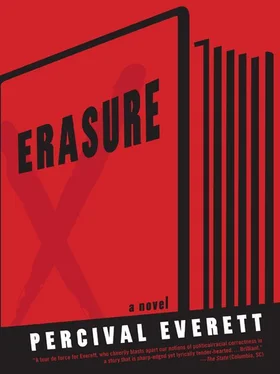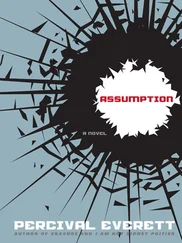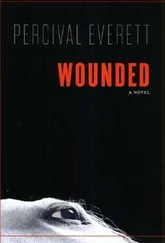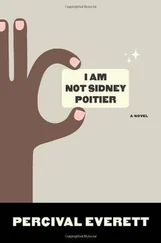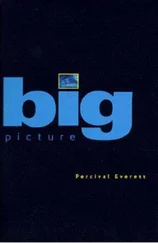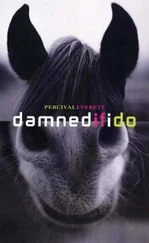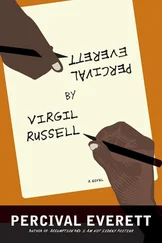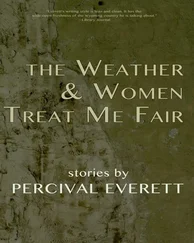“It was your father’s office, dear.”
“I know that, Mother.” Lisa looked at me.
“Mother,” I got her attention. “When’s the last time you visited Father’s office?” She didn’t have an answer. “The fact is, you hardly ever went there when Father was practicing. Now, it’s completely different. It even looks different from the outside.” I reached over and took her hand. “Lisa knows what’s best.”
“Oh, Monksie.” Mother sniffed in her tears. “You’re such a sweet child, always have been. And so smart. You get that from your father, did you know that?”
I glanced over at Lisa to see that she was eating again.
“Of course, we’ll sell the office.”
“Just like that,” Lisa said. “Monk chimes in and you’re hooked on the idea. Christ.”
Lorraine stepped into the room just in time to hear her lord’s name used in vain. She collected our plates and issued an admonishing “Hmmph, hmmph, hmmmph” as she exited.
Mother complained of a headache and we had dessert without saying much. Then Lorraine came in and mercifully informed us of Mother’s approaching bedtime. We kissed the old lady goodnight and watched Lorraine walk her upstairs.

Sitting in my sister’s car outside my hotel, I apologized for butting in about the sale of the office at the dinner table.
“No, you helped,” she said. “Thanks.”
“I’m sorry she always reacts to me like that.”
“Monk, you’re special. I don’t mean just the way Mother, and Father when he was alive, treated you. I’ve always thought that. I just wanted you to know.”
I looked out the window at the street. “I think the same about you, you know.”
“Yeah, I know.” She smiled. Her smile had always been so confident that I was jealous of it. Her smile always made me relax.

I kissed my sister goodbye, told her I’d talk to her soon and went into my hotel where I found Linda Mallory waiting in the lobby.
“Hi, Linda.”
“I’ve been thinking about your paper.”
“I’m sorry.”
“Would you like to go upstairs and fuck me?”
“No, Linda.”
“I’m having a real crisis,” she said. “I really need to have some sex. I need it for self-validation.”
“I’m sorry, Linda.”
She stormed past me, out the door and into the street. Then I heard my name being shouted from outside. It was a bit embarrassing as I turned to find the hotel staff and a couple of guests staring at me. I stepped out and on the narrow path leading through the yard was Davis Gimbel.
“A screaming comes across the sky. It has happened before, but there is nothing to compare it to now,” he said.
The words had little effect on me, save to announce Gimbel’s disturbed, certifiable, and agitated postmodern state. Behind the short, bomber-jacketed academic were Linda Mallory, seething with pent-up sexual frustration, and three other intellectually homeless academics aching to see a fight.
“What’s this all about, Gimbel?” I asked.
“There’s nothing to compare it to now,” he said.
“Okay.” I stepped down the steps to take the noise away from the stoop. “Listen, I’m sorry you didn’t like the paper, but I believe you misunderstood something. I don’t even think about you guys, much less write about you.”
That really got him mad. He circled me as best he could in the small space and even pounded his chest with a closed fist once or twice. “You don’t think much of postmodern fiction, do you?” he said. “Like all avant-garde movements, we never have time to finish what we set out to accomplish.”
I looked at his face in the street and moon lights and found it no more or less ugly for its contorted state. “What did you set out to accomplish?”
“You know good and well. You and your kind, you interrupted us.”
“My kind?” I let that go. “Interrupted you? By not paying attention?”
“The whole culture. You’re just one of the sheep.”
“What the hell are you talking about, man? Are you drunk?”
He continued his circling. A couple of unassociated people stopped at the gate to watch. “Of course, if an avant-garde movement ever achieves its purpose, then it ceases to be avant-garde. By the mere fact that it opposes or rejects established systems of creation, it has to remain unfinished. Do you even understand what I’m saying? We are defunct practitioners of defunct art.”
“You know what your problem is, Gimbel?” I said, leaning away from him. “You actually think you’re saying something that makes sense. Now, if you’ll excuse me.”
That’s when the little Hemingway doll took a poke at me. I sidestepped the swing and watched him roll into an azalea bush. Linda and the other defunct artists rushed to his aid. I offered a shrug to the confused bystanders and stepped away toward the door.
Gimbel was on his knees now and he yelled, “Postmodern fiction came and went like the wind and you missed it. And that’s why you’re bitter, Ellison.”
I stopped, not believing that the man had actually come to fight me because of a paper that I only barely took seriously. Standing over them all on the steps, I said, “I don’t mean to disparage or belittle what you do, Gimbel. I don’t know what you do.”
Gimbel found his legs and stood straight, puffed up his chest. “I have unsettled readers. I have made them uncomfortable. I have unsettled their historical, cultural and psychological assumptions by disrupting their comfortable relationship between words and things. I have brought to a head the battle between language and reality. But even as my art dies, I create it without trying.”
His little group applauded.
“Man, do you need to get laid,” I said, shook my head and stepped through the door.
 It’s 1933 and Ernst Barlach is cracking his knuckles while the cup of tea on the table in front of him cools. “My hands hurt so much these days,” he says.Paul Klee nods, sips his tea. He is saddened himself. He has just been expelled from the Düsseldorf Academy of Art. “They are calling me a Siberian Jew.”“Who is? Das Schwarze Korps?”“Who else? And they are burning any books which contain pictures of our work. They call me a Slavic lunatic.”“They’re correct about both of us.”Ernst laughs.
It’s 1933 and Ernst Barlach is cracking his knuckles while the cup of tea on the table in front of him cools. “My hands hurt so much these days,” he says.Paul Klee nods, sips his tea. He is saddened himself. He has just been expelled from the Düsseldorf Academy of Art. “They are calling me a Siberian Jew.”“Who is? Das Schwarze Korps?”“Who else? And they are burning any books which contain pictures of our work. They call me a Slavic lunatic.”“They’re correct about both of us.”Ernst laughs.
 Eckhart: You know I have a novel, Adolf.Hitler: Do tell, Dietrich.Eckhart: I call it The Morning. The main character is essentially myself. The character is an unrecognized literary genius wbo is addicted, but manages quite well the sweet gift of morphine.Hitler: I hope it is as powerful as your volume of poems. Such anguish and sheer beauty those verses offer the reader.Eckhart: It irks me no end that the whole of my recognition rests on the translation of that damn Norwegian. I actually hate Peer Gynt. Hitler: Oh, but how you transformed it. Now, it speaks to the German soul. That is why it is so popular with the people. And what the work led you to, your patriotic writings and how you’ve unveiled the Jews for what they are. I will fight the trolls with you.Eckhart: They will destroy German culture if we let them.Hitler: Then we will not let them.
Eckhart: You know I have a novel, Adolf.Hitler: Do tell, Dietrich.Eckhart: I call it The Morning. The main character is essentially myself. The character is an unrecognized literary genius wbo is addicted, but manages quite well the sweet gift of morphine.Hitler: I hope it is as powerful as your volume of poems. Such anguish and sheer beauty those verses offer the reader.Eckhart: It irks me no end that the whole of my recognition rests on the translation of that damn Norwegian. I actually hate Peer Gynt. Hitler: Oh, but how you transformed it. Now, it speaks to the German soul. That is why it is so popular with the people. And what the work led you to, your patriotic writings and how you’ve unveiled the Jews for what they are. I will fight the trolls with you.Eckhart: They will destroy German culture if we let them.Hitler: Then we will not let them.
 Eckhart: I am ein Judenfresser. Hitler: Me, too.Eckhart: I can’t believe we lost the war. These pamphlets of mine however will show our people why we lost and that the enemy we sbould fear most was not in the trenches.Hitler: What is this one called?Eckhart: I call this one Judaism in and out of Us. Hitler: I liked Austria under Judah’s Star. Eckhart: Everyone seemed to like that one. I sent This is the Jew to a professor and he sent it back to me with a note telling me it is full of hate. So, I wrote back. I wrote, “It is said that the German schoolmaster won the war of 1866. The professor of 1914 lost the World War.”Hitler: You told him.Eckhart: I have an idea for a newspaper, a weekly that I plan to call, Auf gut Deutsch. And I have been thinking. You should join the Thule Society.Hitler: I am already a member.Eckhart: Shall we recite the motto together?Hitler and Eckhart: Remember that you are German. Keep your blood pure.
Eckhart: I am ein Judenfresser. Hitler: Me, too.Eckhart: I can’t believe we lost the war. These pamphlets of mine however will show our people why we lost and that the enemy we sbould fear most was not in the trenches.Hitler: What is this one called?Eckhart: I call this one Judaism in and out of Us. Hitler: I liked Austria under Judah’s Star. Eckhart: Everyone seemed to like that one. I sent This is the Jew to a professor and he sent it back to me with a note telling me it is full of hate. So, I wrote back. I wrote, “It is said that the German schoolmaster won the war of 1866. The professor of 1914 lost the World War.”Hitler: You told him.Eckhart: I have an idea for a newspaper, a weekly that I plan to call, Auf gut Deutsch. And I have been thinking. You should join the Thule Society.Hitler: I am already a member.Eckhart: Shall we recite the motto together?Hitler and Eckhart: Remember that you are German. Keep your blood pure.
Читать дальше
